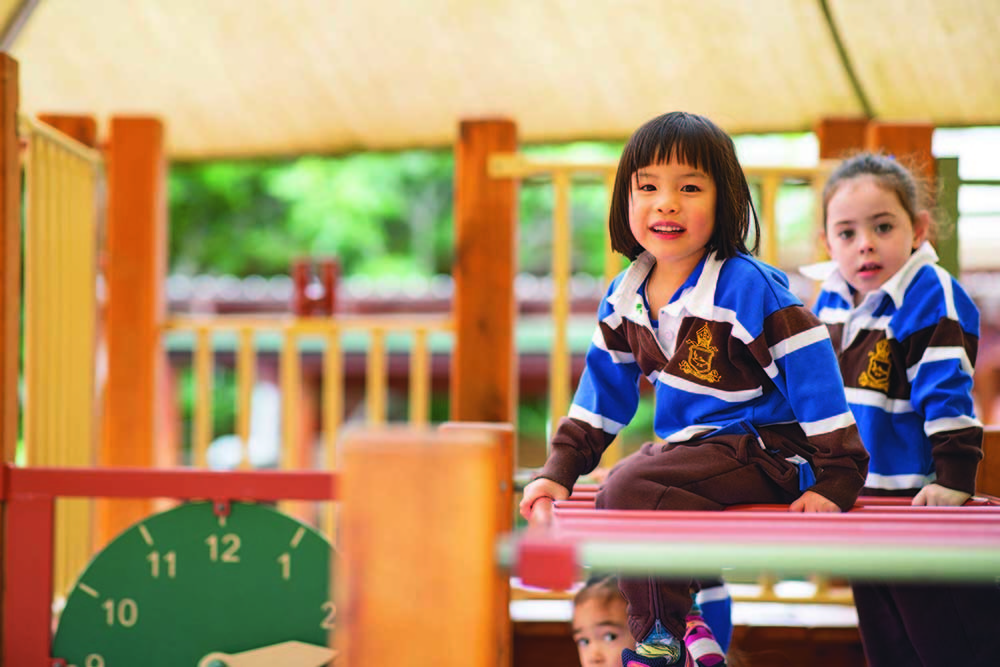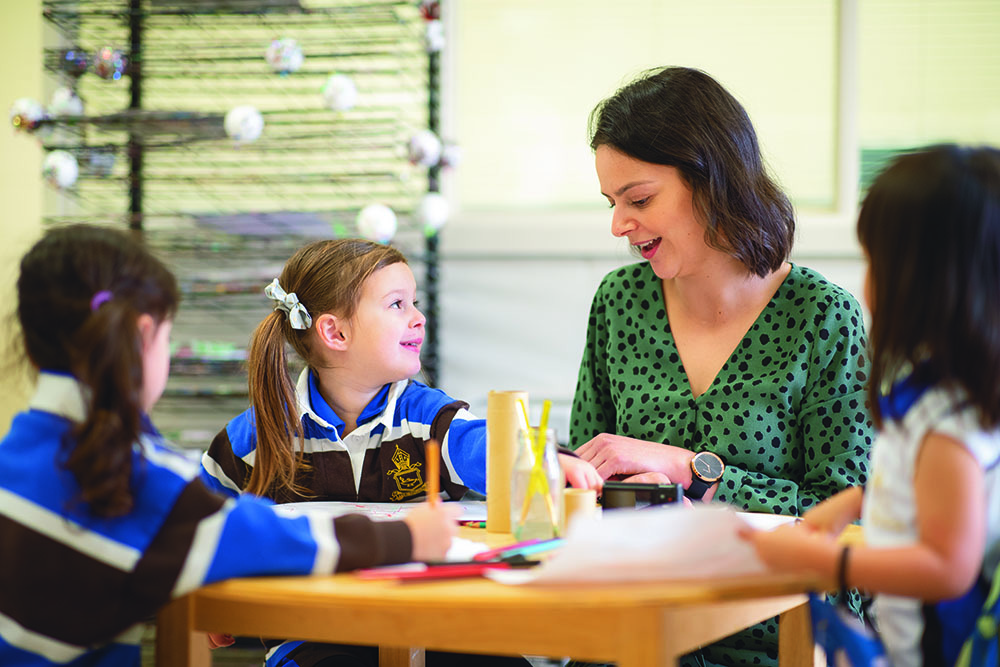Finding the right Early Learning Centre for your child can be complicated. There are a lot of factors to take into consideration, and many of those may not be in your control.
Waiting lists, available hours of care, fees and rebates, and convenience to work and home are all issues parents need to assess.
But it’s also important to know what you want from early childhood education. Is it about socialisation and making friends? Or is it about setting up your child academically? In addition, consider a centre’s philosophy, and make sure it aligns with your family’s beliefs and values.
The best way to assess if an Early Learning Centre is right for your family is to see it in action, so make an appointment to visit during operating hours. It’s a great opportunity to meet the staff, check out the facilities, and see for yourself how the children interact with each other.
During your visit, look for eye-to-eye connections between staff and children. If an adult is constantly standing up and looking down at children it indicates that there may be a power imbalance between educator and child. Instead, look for examples of respectful relationships, such as the adult and child talking and laughing together, sitting side by side and sharing ideas.
Respectful relationships are key to knowing and valuing each child as an individual. “Educators know their little quirks, the things that they are interested in or the way they like to do things,” explains Bernadette Gioia, Director of the Early Learning Centre at Ivanhoe Girls’ Grammar School.
According to Gioia, developing good relationships are crucial. If children feel safe and connected to the adults around them, their levels of stress hormones such as cortisol and adrenaline reduce, and they are more open to learning. “It doesn’t matter how good the program is, if you don’t have good relationships, children won’t learn,” she explains.

In early childhood education, “play” is essential. But it’s not just about having fun. While they play, the child is constantly building synapses and neurons in their brains. “In these years before the age of five, children need to do things often and they need to do them in lots of different ways to help connect information to make sense of what they are experiencing,” explains Gioia. “Play is all about that exploration.”
While some parents will prefer a more academic approach to early childhood education, with a focus on acquiring numeracy and literacy skills and preparing for Prep, it is important to understand how a strong play-based program can actually lend itself to a broad foundation for future learning. So, what does play-based learning look like in practice?
Play can be imaginative, sensory or physical. Children might play by themselves, with a friend or in a small group. Games might have rules, or children might create the rules. No matter how they play, they are constantly learning social skills, such as negotiation and problem solving.
Likewise, constructing with LEGO or cardboard boxes offers another opportunity to learn. “If a child puts something together and it falls apart that's frustrating,” explains Gioia. “Some children might just give it up at that point, but there are some that will keep persevering, figuring out why it’s not working.” That’s the point when an adult might step in, to talk them through the process, and suggest a few different things they can try. “So over time they become more complicated in their thinking,” explains Gioia.
As a parent, it’s important to know how your child will be spending the day. When looking at different centres, find out what a “normal” day looks like. Is it a very structured routine, with rest time, lunchtime and outside playtime factored in? Or is it more flexible, and can vary from day to day, according to the needs and interests of the children? Choose a centre that reflects your own family’s values, to ensure your child feels comfortable in their new environment.
Some centres are fortunate to be able to draw on external resources for specialist programs that are run throughout the week. At the Ivanhoe Girls’ ELC, for example, the play-based routine is enriched with specialist subjects, drawn from the resources offered by the School community. The children enjoy Music, Art, Physical Education and French, and focus on specific skills with expert teachers.

Some parents are excited to get involved in their child’s early learning centre, so it’s worthwhile finding out how you can contribute. Some centres actively encourage parents to get involved and share their skills or unique cultural traditions, others may welcome you to picnics or welcome drinks at the start of the year. It’s a great opportunity to meet other parents and forge community connections.
For Bernadette Gioia, parental involvement also cements a bond between parents and educators. “We see ourselves working together,” she says. “We are a team, and children can sense that positive relationship. That reinforces in them that this is a safe place to learn to play and make friends. It builds security and trust.”
Book a School Tour to find out more about Ivanhoe Girls’ Early Learning Centre.